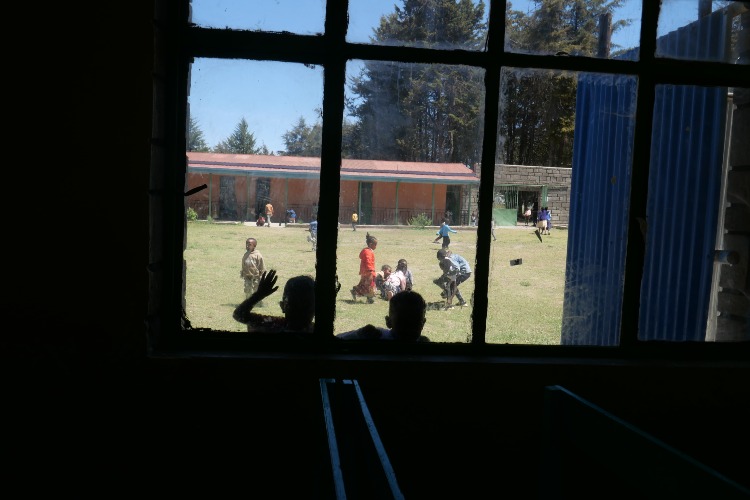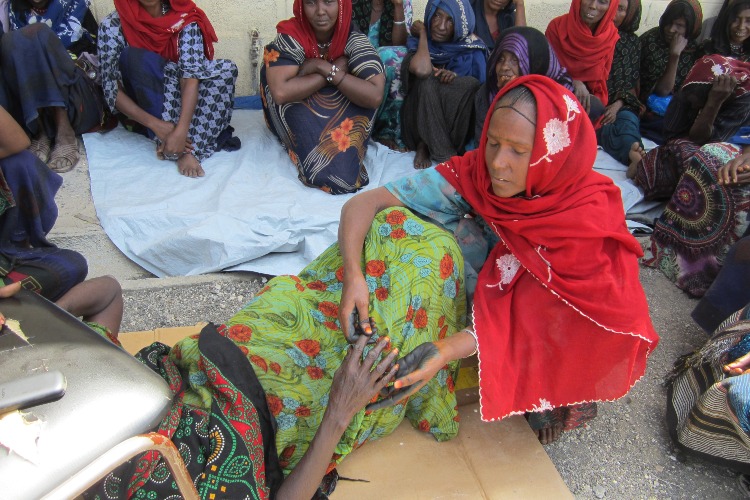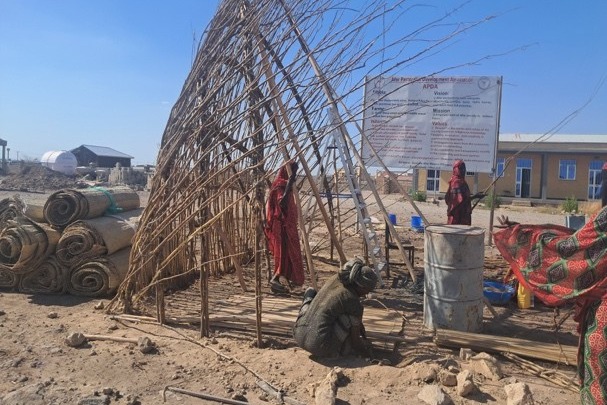CEO Update: Cholera & Conflict in Ethiopia
5 September 2023

.
Watch the latest video update from CEO of Ethiopiaid Australia, Sharon Elliott.
Find out about the recent cholera outbreak in Teru, Afar, plus get wider scope on the continuing effects of the two-year conflict in Ethiopia's Tigray region and resurgent conflict in the neighbouring Amhara region. Learn how your continued support is helping our project partners on the ground respond to challenges as they arise.
.
.
Video transcript
My name is Sharon Elliott and I am the CEO of Ethiopiaid Australia.
Last week you may have read my email about a cholera outbreak in Afar. Today I want to give you an update on the outbreak, plus wider scope of what is happening in Ethiopia and how you are supporting our local project partners.
On Friday 25 August, mere hours after the first cholera cases were reported in Teeru, we were able to transfer $10,000 of desperately needed funds directly to APDA, our partner organisation on the ground.
APDA is so far the only organization that has been able to mobilise quickly enough to respond to the crisis along with the Ethiopian Bureau of Health.
The funds have been used to deploy health workers and purchase water purifiers, medication and hygiene essentials. APDA is also trucking safe drinking water to the region. The health teams have been treating and isolating sick people and performing contact tracing to slow the spread.
In a region that is already suffering from severe malnutrition and a lack of access to clean drinking water, hygiene items, and medications, an outbreak of cholera can be devastating. Left untreated, cholera can kill within hours.
In the latest communications I received from Teeru, 46 people were reported ill, with at least nine deaths since the outbreak started. These numbers would certainly be higher if it weren’t for APDA’s rapid and comprehensive response.
Every single moment counts in a cholera outbreak, and quick response is absolutely critical in containing its spread.
I am so grateful to our donors that we were able to respond so quickly at a time of urgent need.
You made this rapid response possible. You have saved lives in Afar. Without you, we would not have had the emergency funds available to send to our partners at their time of need. We are a small organisation here in Australia, and the benefit of that is that we are able to respond quickly and nimbly in times of immediate crisis.
I am keeping in close contact with Valerie and her teams on the ground, and will provide further assistance as necessary depending on where the greatest needs are.
The cholera outbreak comes at a particularly tough time in Ethiopia. As you may be aware, Ethiopia has gone through a really challenging couple of years. Following the devastation of COVID, Ethiopia has suffered through conflict, drought and extreme economic hardship.
In recent years, Ethiopia suffered through five consecutive failed rainy seasons, the worst drought the region has seen in decades. The drought brought crop failures, livestock deaths and widespread hunger and malnutrition.
Fortunately, parts of Ethiopia have had some reprieve during the last few months with much-needed rain during the latest rainy season.
Despite this, skyrocketing inflation means that many of Ethiopia’s most vulnerable populations still cannot afford the food and medicine they need to survive.
It’s been less than a year since the conflict in the northern Tigray region ended with a peace accord between the Ethiopian government and Tigrayan leaders. While this peace accord was an extremely welcome development, unfortunately the aftermath of the conflict is still being felt, and Ethiopia is once again facing unrest, this time in the Amhara region, also in northern Ethiopia. A six-month state of emergency has been announced by the Ethiopian government, which, amongst other things, restricts movement, assembly and communications.
Regardless of the region or the reasons for conflict and violence, one thing remains the same: It is the civilians who are at the heart of the suffering.
It’s the parents who just want to make sure their children have enough to eat, but are unable to buy any food because supply chains have been blocked. It’s the young girl who wants to go to school, but cannot go out into the streets because it’s too dangerous. It’s the pregnant woman who needs medical care, but is unable to travel to deliver her baby in safety.
A number of our project partners operate in the Amhara region, where the most recent unrest is occurring.
In the city of Gondar, where fierce fighting has occurred, our project partner Hope of Light continues to provide life-changing surgery to women suffering from obstetric fistula. Healing Hands of Joy also operates in the region, providing fistula patients with the support they need to reclaim their lives and become leaders in their communities.
In Debre Birhan, there has been heavy gunfire in residential areas, and water supplies were reportedly cut off. Tens of thousands of internally displaced people have come to the city, which has resulted in a soaring demand for education, child protection and healthcare. Our partner JeCCDO has been working tirelessly to meet these needs, with a particular focus on assisting vulnerable women and children, many of whom have suffered abuse and exploitation.
Our partner, Simien Mountains Mobile Medical Service, which operates in an exceptionally remote and rugged area of the Amhara region, has reported that communications to and from the region are extremely difficult, as the internet has apparently been shut off for several weeks. Their medical teams are continuing to reach remote communities, performing maternal health checks, newborn checks, and supporting dozens of women to reach clinics where they can give birth safely. SMMMS is also conducting screenings for cervical cancer, breast cancer, tuberculosis, anemia, and malnutrition.
Outside of the Amhara region, our project partner APDA is battling against locust plagues and cholera outbreaks, as I already have talked about, all at a time where the effects of drought and conflict are still being sorely felt.
Despite these challenges, APDA’s team has reached thousands of women and girls in Afar, educating them on the dangers of FGM, adolescent marriage and other dangerous traditions.
In the past six months alone, over 700 students have received education in literacy and numeracy thanks to APDA. Especially welcoming is that nearly half of these students are girls.
To deal with the extremely high cost of food, APDA is working with local cooperatives to get wholesale food into remote communities. They are also providing a transport truck so that food can reach the communities most in need.
Life for millions of people in Ethiopia continues to be hard. Despite this, we can see hope. We see hope in every girl who is getting an education, every woman who delivers a healthy baby, and every community that takes a stand against FGM.
I also want to reassure you that these recent developments in Ethiopia in no way undo what has already been achieved thanks to your support. Don’t be disheartened. Be encouraged, because the programs you support have made sustainable, generational change.
The project partners you support in Ethiopia are grass roots organisations, and are completely independent from the government or any other any political groups.
They are run by Ethiopians for Ethiopians, and work on the ground where they can make the biggest impact on individuals and communities in need. And your generous support makes all of this possible.
Every step is a step forward, and the strength, capacity and progress that have been built and nurtured over many years equip the communities we work with to face challenges as they arise with dignity and resilience.
And this is thanks to you.
Thank you from the very bottom of my heart. Without you, this work would not survive. Thousands upon thousands of Ethiopians would go without the life-changing education, healthcare and community support that you provide. The fact that you care about the people in Ethiopia is helping to create a chain effect of positive change which will be felt for generations of Ethiopians to come.
I’ll keep you updated with more news as I receive it. Until then, thank you and take care.




